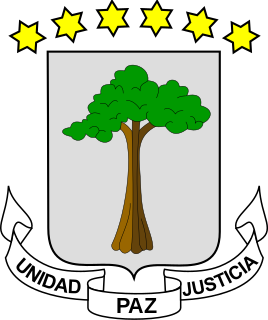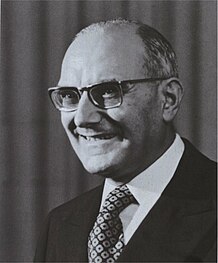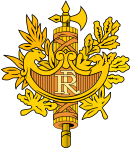
An election is a formal group decision-making process by which a population chooses an individual to hold public office. Elections have been the usual mechanism by which modern representative democracy has operated since the 17th century. Elections may fill offices in the legislature, sometimes in the executive and judiciary, and for regional and local government. This process is also used in many other private and business organizations, from clubs to voluntary associations and corporations.

Uganda is a presidential republic, in which the President of Uganda is both head of state and head of government. There is a multi-party system. Executive power is exercised by the government.
The pan-Blue coalition, pan-Blue force or pan-Blue groups is a loose political coalition in Taiwan, consisting of the Kuomintang (KMT), the People First Party (PFP), New Party (CNP), Non-Partisan Solidarity Union (NPSU) and Minkuotang (MKT). The name comes from the party colours of the Kuomintang. This coalition tends to favor a Chinese nationalist identity over a separate Taiwanese one and favors a softer policy and greater economic linkage with the People's Republic of China, as opposed to the Pan-Green Coalition.
A primary election is the process by which voters, either the general public or members of a political party, can indicate their preference for a candidate in an upcoming general election or by-election, thus narrowing the field of candidates.

The Fiji Labour Party (FLP) is a political party in Fiji. Most of its support is from the Indo-Fijian community, although it is officially multiracial and its first leader was an indigenous Fijian, Dr. Timoci Bavadra. The party has been elected to power twice, with Timoci Bavadra and Mahendra Chaudhry becoming prime minister in 1987 and 1999 respectively. On both occasions, the resulting government was rapidly overthrown by a coup.

Elections in the United States are held for government officials at the federal, state, and local levels. At the federal level, the nation's head of state, the President, is elected indirectly by the people of each state, through an Electoral College. Today, these electors almost always vote with the popular vote of their state. All members of the federal legislature, the Congress, are directly elected by the people of each state. There are many elected offices at state level, each state having at least an elective Governor and legislature. There are also elected offices at the local level, in counties, cities, towns, townships, boroughs, and villages. According to a study by political scientist Jennifer Lawless, there were 519,682 elected officials in the United States as of 2012.

The Orange Revolution was a series of protests and political events that took place in Ukraine from late November 2004 to January 2005, in the immediate aftermath of the run-off vote of the 2004 Ukrainian presidential election, which was claimed to be marred by massive corruption, voter intimidation and direct electoral fraud. Kiev, the Ukrainian capital, was the focal point of the movement's campaign of civil resistance, with thousands of protesters demonstrating daily. Nationwide, the democratic revolution was highlighted by a series of acts of civil disobedience, sit-ins, and general strikes organized by the opposition movement.

The National Democratic Party, often simply called in Arabic: الحزب الوطني Al-Ḥizb al-Waṭaniy – the "National Party", was an Egyptian political party. It was founded by President Anwar El Sadat in 1978.
Reginald Thomas Keys is the father of a British serviceman killed in the Iraq War. He stood in the 2005 General Election as an anti-war independent candidate for MP of Sedgefield, a constituency held by the then Prime Minister, Tony Blair.

In politics, campaign advertising is the use of an advertising campaign through the media to influence a political debate, and ultimately, voters. These ads are designed by political consultants and political campaign staff. Many countries restrict the use of broadcast media to broadcast political messaging. In the European Union, many countries do not permit paid-for TV or radio advertising for fear that wealthy groups will gain control of airtime, making fair play impossible and distorting the political debate in the process.

The 2006 South Carolina gubernatorial election took place on November 7, 2006. Incumbent Republican Governor Mark Sanford was running for re-election against Democratic State Senator Tommy Moore and became only the third Republican governor in South Carolina to win a second term. Sanford started the campaign with a double-digit edge over Moore and he maintained that lead to election day. During the course of the campaign, Sanford's approval rating averaged in the mid fifties. In Sanford's re-election victory, he also garnered 22% of the African American vote, which was considered very high for a Republican statewide candidate.

Federal elections for the inaugural Parliament of Australia were held in Australia on Friday 29 March and Saturday 30 March 1901. The elections followed Federation and the establishment of the Commonwealth of Australia on 1 January 1901. All 75 seats in the Australian House of Representatives, six of which were uncontested, as well as all 36 seats in the Australian Senate, were up for election.

Ahmed Mohamed Shafik Zaki is an Egyptian politician and a former candidate for the presidency of Egypt. He was a senior commander in the Egyptian Air Force and later served as Prime Minister of Egypt from 29 January 2011 to 3 March 2011.

Parliamentary elections were held in Poland on 4 March 1928, with Senate elections held a week later on 11 March. The Nonpartisan Bloc for Cooperation with the Government, a coalition of the Sanation faction - won the highest number of seats in the Sejm and 48 out of 111 in the Senate–in both cases, short of a majority. Unlike latter elections during the Sanation era, opposition parties were allowed to campaign with only a few hindrances, and also gained a significant number of seats. The 1928 election is generally considered the last free election in Poland until 1989 or 1991, depending on the source.

Indonesia's sixth legislative election, and the fifth under the New Order regime, was held on 9 June 1992. Although the share of the vote won by Golkar declined, and the two parties saw their votes rise, the government organisation still won a clear majority.

A presidential election was held in Equatorial Guinea on November 29, 2009. Teodoro Obiang Nguema, who has been President of Equatorial Guinea since 1979, ran for another term and won re-election with 95.4% of the vote, according to official results. Opposition leader Plácido Micó Abogo placed second with 3.6%. However, international observers and the main opposition candidate questioned the legitimacy of this election, noting the poor management which created an unfriendly field for other candidates to take part, media manipulation and the unbalanced results.

Presidential elections were held in Brazil in 1989. They were the first direct presidential elections since 1960, the first to be held using the two-round system and the first to take place under the 1988 constitution.

Parliamentary elections were held in Portugal on 28 October 1973, the last under the Estado Novo regime. After the only opposition party withdrew from the election, the People's National Action (ANP) was the only list to contest the election, winning all 150 seats.

Parliamentary elections were held in Iran on 10 April 1992, with a second round on 8 May. The elections were the first parliamentary elections held in Iran since the death of Ayatollah Khomeini and during Ali Khamenei's leadership.

An Ontario general election was held on June 3, 1999, to elect members of the 37th Legislative Assembly of the Province of Ontario, Canada.






















